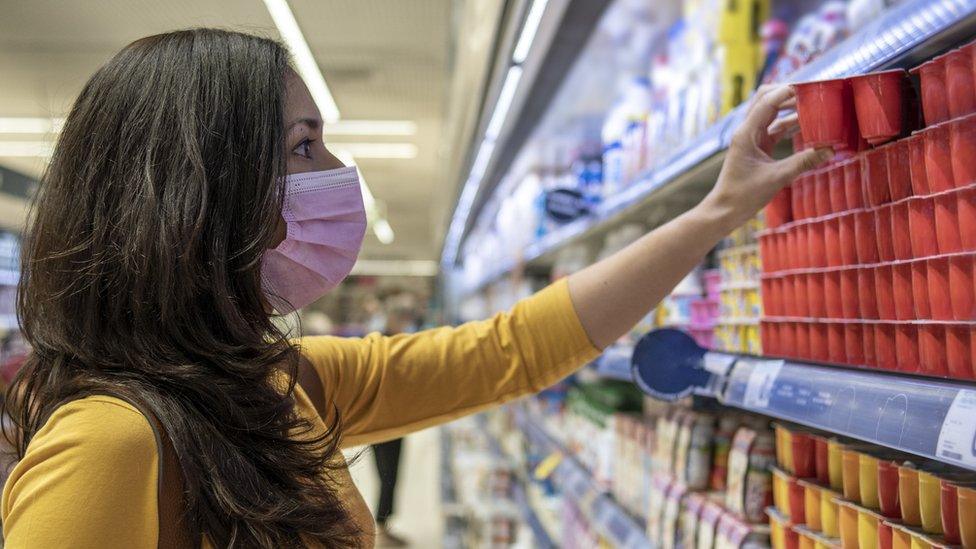Co-op supermarket scraps yoghurt use-by dates in bid to cut food waste
- Published
- comments

The Co-op supermarket has announced plans to ditch use-by dates on its own-brand yoghurt in a bid to reduce food waste.
The company said the label on packets and containers will instead be replaced by a best-before date as guidance.
Six million people in the UK eat a yoghurt daily, the supermarket said.
But research from recycling charity Wrap shows half of yoghurts are binned unopened, mainly because they were not eaten before the recommended date.
The charity's research has also suggested 70% of food waste happens in homes.
Use-by labels are the dates until which perishable food can be cooked and consumed safely. Best-before guidance, meanwhile, is for when the product should be consumed to get the best quality, taste and texture.
The Food Standards Agency says it is up to manufacturers to decide, external whether to apply a use-by or best-before date on their products. It will depend on factors such as how the food is made and how risky it is, it said.
In January, fellow supermarket Morrisons got rid of use by dates on its own-brand milk, in a move it said was aimed at preventing millions of pints being poured down the sink.
'Reduce carbon emissions'
Nick Cornwell, head of food technical at the Co-op, said yoghurt can be safe if stored unopened in a fridge after the date mark, as the acidity of the dairy product acts as a natural defence for food safety.
He explained the supermarket were encouraging shoppers to "use their judgment" if their yoghurt has passed its best-before date, adding the move was designed to help reduce food waste.
For foods with a best before date, the FSA urges people to use their senses to check whether it is appropriate to eat. It suggests smelling some dairy products with a best before date to see if they have soured.
Mr Cornwell said the move would hopefully help customers to make minor changes which can "collectively make a big impact and combat unnecessary food waste".
"Controlling food waste is not only beneficial for managing household budgets, it also has an environmental benefit and will ultimately help reduce carbon emissions," he added.
Mr Cornwell also called on other retailers and food brands to review their own pack guidance practices and also make the yoghurt labelling switch.
Five tricks for longer food freshness
Catherine David from Wrap said the charity was "delighted" at the change, as the date listed on yoghurt packets is a "fundamental reason that it is wasted at home".
"Wasting food feeds climate change and costs money," she said.
"Applying a best before date helps give people the confidence to use their judgment to eat beyond a best-before date and use more of the yogurt they buy - protecting the planet and their pockets."